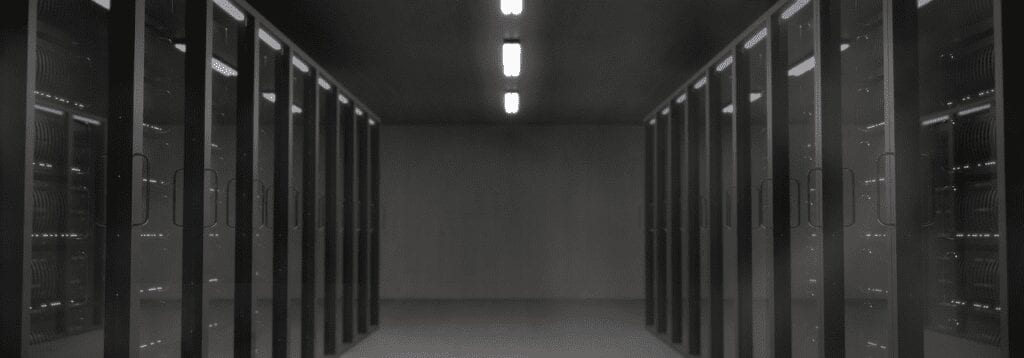In the course of studying coding or other related fields, you’ve no doubt seen the terms ‘information systems’ or ‘information technology’ bandied about without much explanation. Adding to that confusion is the fact that people will often interchange the terms without much reason. The fact is, these terms do refer to specific fields in the world of technology, and there are plenty of positions within them.
The need for workers in information systems positions is showing no sign of slowing down. If you’re looking for such a position, what do you want to look for? Are there truly any differences between them? Yes, there are plenty of differences as they involve different skills and areas of training, but fundamentally they’re connected. Let’s break them down a bit further.
Information Systems

Generally speaking, information systems refer to everything having to do with creating, storing, and disseminating information. That’s a pretty broad definition, especially when you consider that it doesn’t just have to refer to computer-based information. An information system can include written documents, institutional knowledge, or anything else that has knowledge value, including people.
The study of information systems is more about how people can use technology to help them do their jobs well and manage their creation, use, and storage of information. If there was an easy one-size-fits-all solution for every organization, the field wouldn’t need to exist. Part of the work in information systems is finding what works for a particular organization, designing answers for them, and helping them to implement that solution.
The work of finding what companies need involves a careful study of that organization, almost in the same way an anthropologist studies a foreign culture. This role can involve many interviews with a client to understand their business and what their technology needs are, even if they don’t know yet. Someone working with developing information systems might look for an organization’s ‘pain points’, or areas that are causing problems with their workflow. These pain points might need a technological solution, or they might be caused by other issues and are a side effect.
What aids someone working in information systems at this level is a broad understanding of everything that falls under the systems umbrella. This includes programming and knowledge about hardware and networks, but also business administration, interpersonal dynamics, and organizational behavior.
If you’re getting a sense that work in information systems is very large scale and holistic, you’d be correct.
Information Technology

Information technology, on the other hand, is specifically the aspects of information systems that do involve the use of computers or other similar technology. This includes all hardware and software, databases, and networks.
The work in this field involves maintaining all of these parts so that an organization can run smoothly. This involves a lot of problem-solving, staying up to date on current technological trends, and being vigilant for any potential problems or other security issues.
An information technology professional might be responsible for ordering the laptops a company uses as well as any needed software. They would also have to register and install that software for each user or through some central network. Any licensing or registration processes would be handled by an information technology department. This responsibility transfers from the individual machines and networks to a digital link to the outside world. Think of when you first moved into where you live now. You had to purchase a laptop and all the software you use on it. Before you could use it, you needed to contact an internet provider and have that installed in your home. An information technology staff needs to manage this all on a larger scale for hundreds, if not thousands of people in a business. That work goes even further for them as they would have to manage the digital infrastructure within their building as well.
So, What’s the Difference?

Both of these fields deal with the use of information, particularly in relation to computers, but their backgrounds and environments are very different.
An easy way to think of the relationship between these two fields is to see information technology as a subset of information systems. Information technology is much more about the nuts and bolts of the tools used in the course of managing information. Information systems, as a field, is about how that technology works well with people. This doesn’t mean that the human element doesn’t matter in information technology. It involves making sure the tools are available and working for people to use without the need for a close examination of what they need to do with them.
Just because it’s a subset doesn’t mean information technology is ‘less than’ information systems. Another way to think of them is both being part of an information ecosystem. Both are necessary for the productive use of information and would fall apart without the other. If information technology just set generic machines in front of people without regard to whether or not these were the tools an organization needed, it would be unproductive chaos. Similarly, if everyone was responsible for their own machines and internet in an organization, you’d have even more chaos.
If information technology is a subset of information systems, what else falls under that umbrella? It turns out that just about any and all technology-related fields qualify, including programming, data analysis, and digital security. If you’re working with technology in an organization with the creation, use, or dissemination of information, you’re part of the information ecosystem.
What’s the Right Direction?
A short explanation of the difference between the two is that the information systems field is all about the technology, people, and how they work together, where information technology is about the design and implementation of the tools within that system. So which direction is right for you? If you’re looking to design the systems that people are using at the macro level, you might prefer working in information systems. If you’d really like to get your hands dirty with the actual machinery and software day in, day out, consider work in information technology.
If you’re interested in working with information technology, check with your local bootcamp for classes in hardware and networking support, among other topics. If you’re thinking about the broader area of information systems, the technology courses would still be a good grounding for you, as well as every other aspect of the ecosystem: programming, databases, security, etc. Talk to an advisor at your bootcamp today.
About us: Career Karma is a platform designed to help job seekers find, research, and connect with job training programs to advance their careers. Learn about the CK publication.
